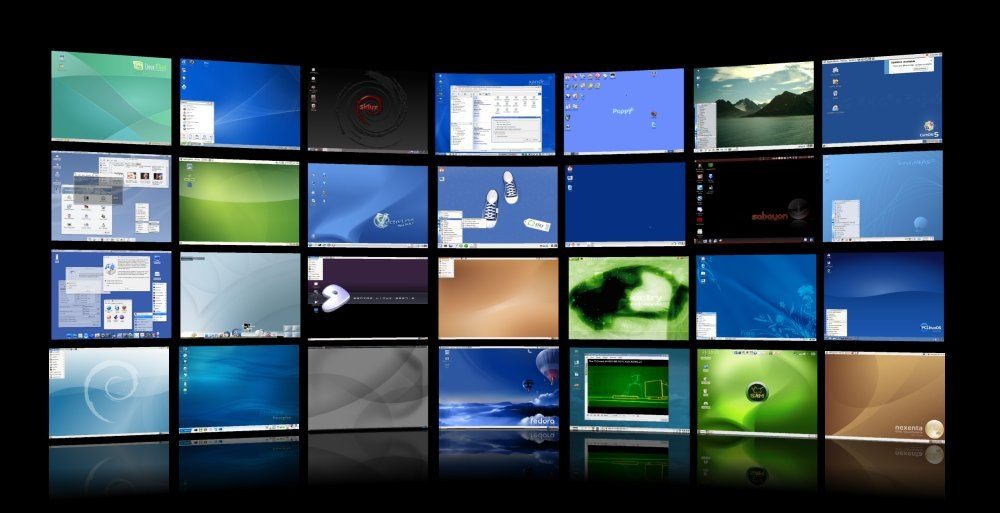
We start off this series with a heavyweight in Open Source, Linux. For the uninitiated, Linux is an open source operating system with all the capabilities required for everyday tasks we need to accomplish. This article is intended to give you a basic grounding in the operating system. Embedded are links which might get you to places you wish to see.
Editor’s Note – While this article is not directly related to Entrepreneurs or Entrepreneurship, it is part of a series of articles detailing some open-source tools start-ups might find useful.
A short history of Linux
In 1991, the most popular operating system with academics was the old, tried and tested system, UNIX. While extremely powerful and very efficient, it was commercial. There was a very famous effort to build an open source operating system as an alternative to UNIX called GNU. GNU, quite amusingly, stands for “GNU’s Not UNIX”. The head of the project is a very famous man called Richard Stallman. The project still exists and maintains what are called the core utilities of the Linux Operating system.
However, GNU came to an impasse, seeing that no one was able to make what programmers call the “kernel” of the GNU Operating System. The Kernel is to the operating system what the brain or liver is to the body. It is what does all the dirty work and abstracts things like memory management away from the program so that the program can focus on doing what it does best, i.e. serve the user.
This was when a Finnish Student studying in the University of Helsinki, a certain Linus Torvalds, came up with a kernel, namely Linux. Torvalds was frustrated by Minix (A UNIX clone), whose licensing permitted only educational use and being curious about operating systems in general, decided to write a kernel on his own.
The rest, as they say, is history. Developers flocked to Linux and began building upon it, turning it from a kernel into a fully-fledged operating system.
Flavours and Distros
Linux comes in many flavours. Unlike what we’re used to from commercial software like Windows and OS X, people take the Linux kernel and core utilities, add programs like a file manager and a window manager on top, tweak the code to be more efficient at certain tasks and then package the compilation together and release it. These releases are called “flavours” or “distributions”, distros for short. The most prominent of them are described below:
- Linux Mint – I start with this because even though it might not be as recognisable as Ubuntu, it is the most downloaded distro out there. Based on Ubuntu with its trademark “mint” tools, this distro is meant for the newbie. The developers are very receptive to suggestions and are very willing to help their users out. It is based on the Gnome Desktop Environment and uses the Deb package manager. It is a great choice for personal computers.
- Ubuntu – Ubuntu is the most widely known distro. Started in 2004 by Mark Shuttleworth, Ubuntu became famous because of its distribution policy. Anyone who wished to have it could have a free CD shipped to themselves. In the pre-amazing-bandwidth age, this was a boon and people began to take to Ubuntu. Even today, this distro remains the second most used in the world and widely popular. In fact, Dell recently launched a series of Laptops with Ubuntu Linux pre-installed in them in a project called Sputnik. Ubuntu uses the Unity Desktop Environment and is based on the Deb Package manager. It is again, a good choice for personal computers.
- Red Hat Linux and Fedora – The roots of Red Hat Linux lie in 1995 when Bob Young and Marc Ewing launched it. It was revolutionary at that time, using the RPM package manager and introducing something called automatic dependency resolution. In 2003, the company announced a major strategic change. The product was split into two parts, with Red Hat Linux being targeted at enterprises and Fedora being targeted at enthusiasts. Fedora remains at the cutting edge of Linux development and the most radical changes in any packages are generally seen here first. Red Hat Linux powers a majority of servers out there and is not free. However, if you are planning to start a company offering cloud based services, try learning a bit of Red Hat in order to effectively manage your servers.
- SUSE – This project was launched in 1992 by Roland Dyroff, Thomas Fehr, Hubert Mantel and Burchard Steinbild as a German edition of the famous Slackware Linux. After having gone through many acquisitions and being used by many users OpenSuSE (the latest free version of the OS) can boast of a large group of satisfied users using a distro known for its polish. Based on the KDE desktop environment and the RPM package manager, OpenSuSE is said to be the best distro for desktops in certain circles.
You might not have understood what all the terms used up there mean. For instance, it’s not easy for a newcomer to Linux to understand the meaning of “Desktop Environment” or “Package Manager”. In a nutshell, a desktop environment is the environment in which you work. For instance, OS X uses the Aqua Desktop Environment (with all the fancy effects, cool transitions and the menu bar permanently stuck on top) and Windows uses Aero (the re-sizable windows, the buttons on the upper right corner to minimize, maximize and close). A package manager is a system which manages programs, or more accurately, packages. Linux does not generally get programs on CDs or on .exe files available on myriad sites online. Most distros have a centralised repository of packages from where a program called a package manager picks them up. They come in two main file types, RPM and Deb. A distro based on RPM packages cannot use Deb files and vice-versa.
Which distro to use is entirely your choice. However, I would recommend starting out with Mint if you’re a complete newbie to Linux. Not only is it easy to install, it’s very easy to use as well.
Advantage: Linux?
There are a myriad reasons to use Linux, the most important of which is that it’s free and powerful. The second is that it’s scalable. Your organisation can use Linux in any way they see fit. Small start-up, or big corporation, the promise of a free OS (If you pay for Red Hat, you can get support from them too!) which has no viruses is a great one. While there is some truth to Linux having a learning curve, the truth is that modern distros have narrowed it down to being almost negligible. So not using it is simply a matter of inertia on your part.


























